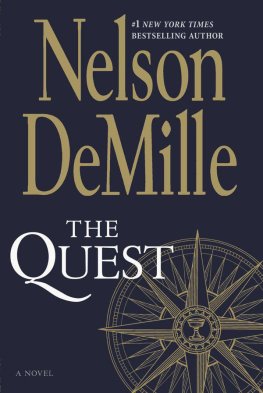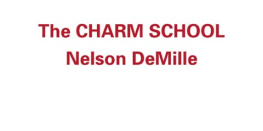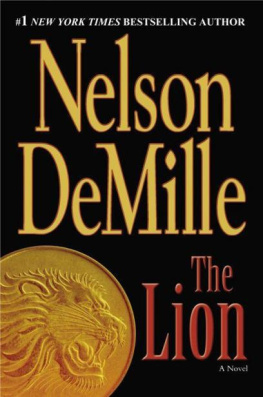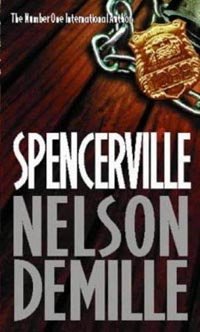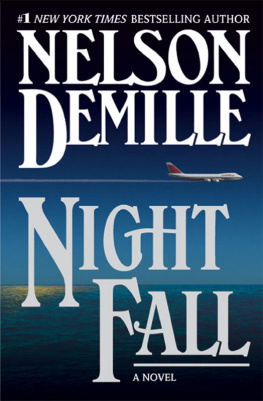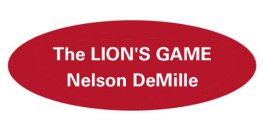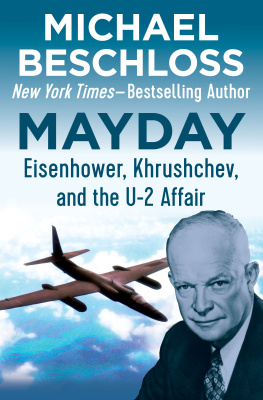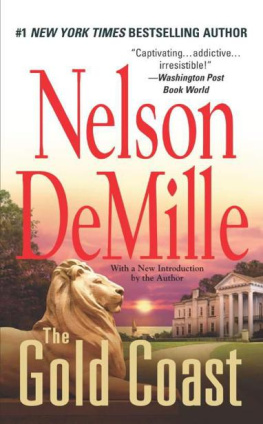Nelson DeMille - Mayday
Here you can read online Nelson DeMille - Mayday full text of the book (entire story) in english for free. Download pdf and epub, get meaning, cover and reviews about this ebook. genre: Detective and thriller. Description of the work, (preface) as well as reviews are available. Best literature library LitArk.com created for fans of good reading and offers a wide selection of genres:
Romance novel
Science fiction
Adventure
Detective
Science
History
Home and family
Prose
Art
Politics
Computer
Non-fiction
Religion
Business
Children
Humor
Choose a favorite category and find really read worthwhile books. Enjoy immersion in the world of imagination, feel the emotions of the characters or learn something new for yourself, make an fascinating discovery.

- Book:Mayday
- Author:
- Genre:
- Rating:4 / 5
- Favourites:Add to favourites
- Your mark:
- 80
- 1
- 2
- 3
- 4
- 5
Mayday: summary, description and annotation
We offer to read an annotation, description, summary or preface (depends on what the author of the book "Mayday" wrote himself). If you haven't found the necessary information about the book — write in the comments, we will try to find it.
Mayday — read online for free the complete book (whole text) full work
Below is the text of the book, divided by pages. System saving the place of the last page read, allows you to conveniently read the book "Mayday" online for free, without having to search again every time where you left off. Put a bookmark, and you can go to the page where you finished reading at any time.
Font size:
Interval:
Bookmark:
Nelson DeMille, Thomas Block
Mayday
SUCCESS/FOUR FLIGHTS THURSDAY
MORNING/ALL AGAINST TWENTY
ONE-MILE WIND/STARTED FROM
LEVEL WITH ENGINE POWER ALONE/
AVERAGE SPEED THROUGH AIR
THIRTY-ONE MILES/LONGEST
FIFTY-NINE SECONDS/INFORM
PRESS/HOME CHRISTMAS
Telegram to the Rev. Milton Wright, from Kitty Hawk, North Carolina,
December 17, 19031
Silhouetted against the deep blue horizon of the stratosphere, Trans-United Flight 52 cruised westbound toward Japan.
Below, Captain Alan Stuart could see pieces of the sunlit Pacific between the breaks in the cloud cover. Above was subspace-an airless void without sun or life. The continuous shock wave generated by the giant crafts supersonic airspeed rose invisibly off its wings and fell unheard into the mid-Pacific Ocean.
Captain Stuart scanned his instruments. It had been two hours and twenty minutes since the flight had departed San Francisco. The Straton 797 maintained a steady Mach-cruise component of 1.8-930 miles per hour. The triple inertial navigation sets with satellite updating all agreed that Flight 52 was progressing precisely according to plan. Stuart picked up a clipboard from the flight pedestal between himself and the copilot, looked at their computer flight plan, then glanced back at the electronic readout of position: 161 degrees, 14 minutes west, 43 degrees 27 minutes north-2100 miles west of California, 1500 miles north of Hawaii. Were on target, he said.
First Officer Daniel McVary, the copilot, glanced at him. We should be landing at Chicago within the hour.
Stuart managed a smile. Wrong map, Dan. He didnt care for cockpit humor. He unfolded the chart for todays mid-Pacific high-altitude navigation routes and laid it on his lap, studying it slowly with the motions of a man who had more time than duties. The chart was blank except for lines of longitude and latitude and the current flight routes. Flight 52 had long left behind any features that mapmakers could put on a chart. Even from their aerie of over twelve miles altitude, there was no land to be seen over this route. Captain Stuart turned to First Officer McVary. Did you get the fourth and fifth sectors in?
Yes. Updates, too. He yawned and stretched.
Stuart nodded. His mind drifted back to San Francisco. His hometown. Hed done a television talk show the previous morning. Hed been anxious about it and, like an instant replay, snatches of the conversation kept running through his brain.
As usual, the interviewer had been more interested in the Straton than in him, but hed become accustomed to that. He ran through the standard spiel in his mind. The Straton 797 was not like the old British/ French Concorde. It climbed to the same altitude the Concorde did, but it flew a little slower. Yet it was measurably more practical. Armed with some aerodynamic breakthroughs of the 90s, the Straton engineers had aimed at less speed and more size. Luxury coupled with economy of operation.
The aircraft held 40 first-class and 285 tourist-class passengers. For the interview, he remembered to mention the upper deck where the cockpit and first-class lounge were located. The lounge had a bar and piano. One day when he was feeling reckless he would tell an interviewer that it had a fireplace and pool.
Stuart had spouted the advertising hype whenever he couldnt think of anything else to say. The Straton 797 flew faster than the sun. Slightly faster than the rotational velocity of the earth.
At a cruise speed of close to 1,000 miles per hour, Flight 52 should arrive in Tokyo at 7:15 A.M. local time, though it had departed San Francisco at 8:00 A.M. At least that was usually the case. Not today. They had departed San Francisco thirty-nine minutes late because of a minor leak in the number-three hydraulic system. While the mechanics changed the bad valve, Captain Stuart and his flight crew spent the delay time reviewing their computer flight profile. An updated winds aloft forecast had been sent to them, and Stuart had used the new wind information to revise his flight plan. They would fly south of the original planned routing to stay away from the worst of the newly predicted headwinds.
Time en route would be only slightly greater than usual, at six hours and twenty-four minutes. It was still impressive; grist for the medias mill. Across seven time zones and the International Date Line in less than a working mans day. The marvel of the decade.
But it was a little frightening. Stuart remembered the time he had been candid during a magazine interview. He had honestly explained the technical problems of supersonic flight at 62,000 feet, like the subtle effects of ozone poisoning and the periodic increases in radiation from sunspots. The interviewer had latched on to some of his points, exaggerated others, and had written an article that would have scared the hell out of a Shuttle astronaut. Stuart had been called in to speak to the Chief Pilot about his candor. Never again. I did another one of those damned TV interviews. Yesterday morning.
McVary looked at him. No kidding? Why didnt you tell us? Not that I would have gotten up that early
The junior pilot in the cockpit, Carl Fessler, who sat behind them at the relief copilots position, laughed.
Why do they always pick on you, Skipper?
Stuart shrugged. Some idiot in public relations thinks I come across good. Id rather fly through a line of thunderstorms than face a camera.
McVary nodded. Alan Stuart was every inch the image of the competent captain, from his gray hair to the crease in his pants. I wouldnt mind being on TV.
Stuart yawned. Ill suggest it to PR. He looked around the flight deck. Behind McVary, Fessler was typing into a portable computer-an electronic equivalent of a ships log-with backup data from the instrument panel. McVary had returned to staring blankly ahead, his mind, no doubt, on personal matters.
The usual mid-flight routines had laid their blue veil over the crew. The blue mid-Pacific blues. The doldrums, as they were called by seamen-but this ship was not becalmed as a ship caught in the doldrums. It was ripping along at close to the velocity of a bullet. Yet there was really nothing, at that moment, for the three pilots to do. At 62,000 feet, all the weather was beneath them. An hour before, they had flown over an area of bad weather. Some of the towering cumulus clouds had reached up high enough to at least give any of the crew and passengers who cared to look at them something to see. But there had not been even the slightest turbulence at those altitudes. Stuart would have welcomed a little bump, the way truck drivers did on a long haul across endless smooth blacktop. He glanced out the front window again. There was one thing to see that never ceased to fascinate him: the rounded horizon line that separated earth from sub-space.
The autopilot made small and silent corrections to keep the flight on the preprogrammed course. Stuart listlessly laid two fingers of his right hand on the control wheel. He had not steered the 797 manually since right after takeoff. He would not use the control wheel again until the final moments of their landing approach at Tokyo.
Carl Fessler looked up from his portable computer. He laid it down on the small table next to him. What a lot of crap this backup data is. Most of the other airlines dont do this crap anymore.
Stuart took his eyes off the horizon and glanced back at his relief copilot. I bet we could find some eager young new-hire pilot to take your place. Hed probably type faster, too. Stuart smiled, but he had been pointedly serious. He had little patience for the new breed. They had a job that was fifty times better than what had come before, yet they seemed to complain constantly. Did they realize that thirty years ago Alan Stuart had to hand-plot each and every route segment before climbing into the copilots seat? Spoiled, Stuart said to himself. Telling them about it was a waste of time. If we land in the teeth of a monsoon at Tokyo, youll earn your days pay, Carl.
Font size:
Interval:
Bookmark:
Similar books «Mayday»
Look at similar books to Mayday. We have selected literature similar in name and meaning in the hope of providing readers with more options to find new, interesting, not yet read works.
Discussion, reviews of the book Mayday and just readers' own opinions. Leave your comments, write what you think about the work, its meaning or the main characters. Specify what exactly you liked and what you didn't like, and why you think so.

